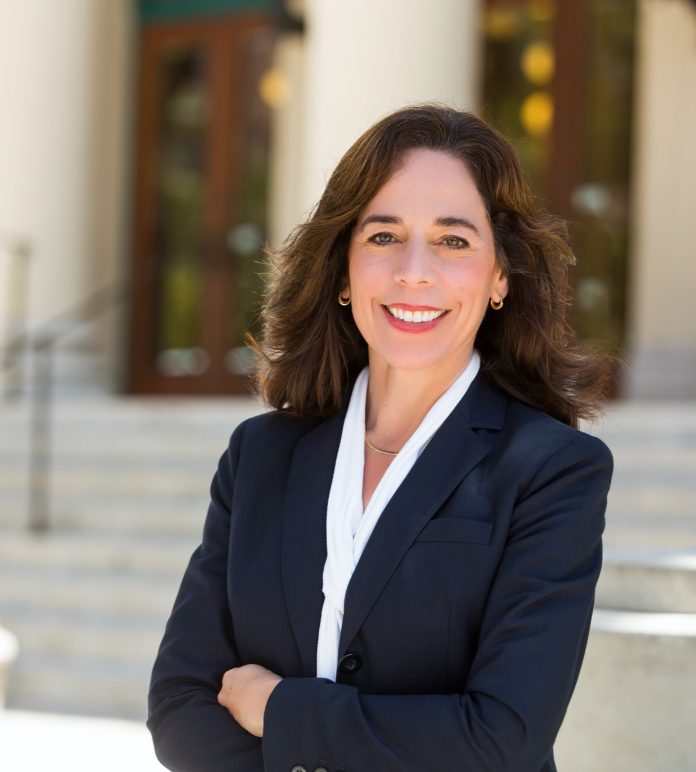By Mara W. Elliott
Helping victims of domestic violence escape the cycle of abuse is one of the most difficult and important things I do as City Attorney.
The catalyst for a program that saves lives every year was the brutal murder of 19-year-old Diana, who did everything she could to break free from an abusive relationship, but was ultimately killed by her husband.
Diana was trying to end a violent marriage. She knew she was in grave danger, so her family accompanied her wherever she went, even to school. They were waiting along with her 10-month-old daughter for her to finish a class at City College on the day in 2010 when her husband, waiting in a tree to spot her leaving class, brutally murdered her in a campus restroom.
Tragedies like Diana’s are not uncommon. Victims of domestic violence are at their greatest risk when they’re attempting to leave an abuser. A week before Diana was killed, her husband kidnapped and raped her. She was able to escape and notify police, but the District Attorney’s Office later told the media there had not been enough evidence to charge him with a crime. Diana obtained a temporary restraining order, but that didn’t deter her husband.
Diana’s death gave rise to a special task force that fast-tracks critical services and rallies around individuals who are at extreme risk of being murdered by their partner. A coalition of law enforcement, government agencies, and non-profit organizations make up the San Diego County Domestic Violence High Risk Case Response Team, also known as the “High Risk Team.”
My office’s Victim Services Coordinators support High Risk Team victims through the worst times in their lives with the goal of preventing another case like Diana’s from occurring. If warning signs indicate a victim is at risk of being murdered — they’ve been strangled or threatened with a firearm, for example — the High Risk Team steps in, regardless of whether criminal charges have been filed.
High Risk Team victims are often financially dependent on their abuser, have young children, and need medical care. When a victim is identified as a High Risk Team candidate, we first respond to their immediate safety needs by connecting them to emergency housing and support services. We collaborate with other agencies to supply essentials, help them access public benefits and childcare, and work to secure them a safe home. Once we ensure that we have met their basic needs, we help them regain their independence by achieving personal and professional goals.
In one situation, an abuser habitually stalked his partner in violation of a restraining order. Our Victim Services Coordinators helped her and her son safely relocate to an area unknown to her abuser and establish a confidential mailing address. Upon her relocation, the survivor said she “finally felt safe.”
With the help of the High Risk Team, one survivor became a specialized medical assistant, and another is attending a trade school.
Children who have been traumatized by abuse in the home are also supported throughout their healing process. Our Victim Services Coordinators work with our partners to place child survivors in programs that specialize in helping young people recover from abuse and trauma.
A committed partner of the High Risk Team, the City Attorney’s Office works to protect vulnerable San Diegans from the most devastating consequences of domestic violence. Since its inception in 2011, the High Risk Team has served more than 400 individuals, with no known fatalities.
If you believe you are in danger, please contact the San Diego Family Justice Center, a division of the City Attorney’s Office, which provides comprehensive services to survivors of domestic violence, sexual assault, and sex trafficking. You are not alone. We are here to help. You are safe at the San Diego Family Justice Center.
(619) 533-6000 (M-F, 8:00 a.m. – 5:00 p.m.)
(888) DV-LINKS (888-385-4657) 24 hours
Call 9-1-1 for emergencies
Mara W. Elliott is the San Diego City Attorney














